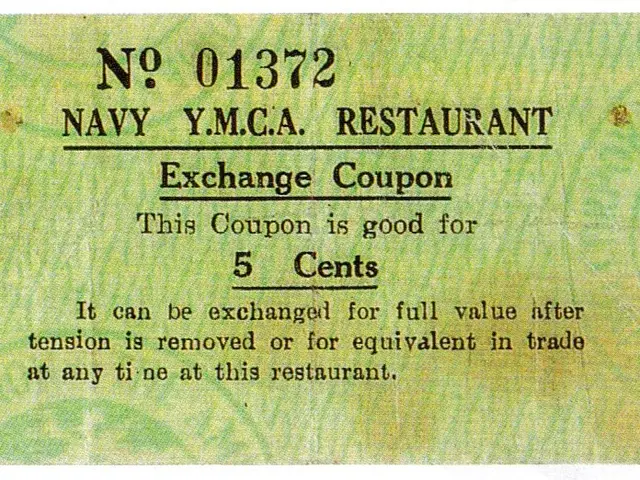Thailand's casino sector undergoing transformation and growth
Welcome, folks, to a rollicking ride through the world of gambling in Thailand, where the culture of wagering is as rich and complex as a bowl of Thai green curry. Despite strict laws prohibiting most forms of betting, Thailand's historical affection for gambling continues to make waves in the 21st century. Buckle up, because we're diving headfirst into the past, present, and future of Thailand's gambling scene.
The Good Ol' Days: Gambling without Casinos
Thai society has been no stranger to gambling for centuries, with traditional games like cockfighting and playing cards deeply ingrained in its history. During King Rama III's reign (1824-1851), gambling was legalized, leading to government-run gambling houses generating state revenue. However, escalating issues with addiction and other social problems prompted the closure of these establishments by the early 20th century.
The Gambling Act of 1935 put the kibosh on most gambling activities, leaving only government-owned lotteries and horse racing at the Royal Bangkok Sports Club as legal outlets. But, like a game of cat and mouse, underground casinos continued to thrive in major cities such as Bangkok and Pattaya, under the protection of organized crime and corrupt officials - resulting in a dual gambling market in the Land of Smiles.
Proposals to legalize land-based casinos have faced fierce resistance over the years due to concerns about crime and addiction. However, the success of legal casinos in neighboring countries, like Vietnam and the Philippines, keeps the conversation going in Thailand.
Fast Forward to Today: Online Gambling's Rise
While traditional, brick-and-mortar casinos remain out of reach for Thai gamblers, the digital era has brought a new form of excitement: online gambling. The rapid advancement of internet connectivity, smartphone accessibility, and digital payment systems has fueled the rapid emergence of an online casino industry, albeit in a legal gray area.
Online Casinos - Here to Stay?Thai players can access foreign online casinos, offering various games like slots, poker, and sports betting. Despite its illegal status, online gambling is on the rise in Thailand, with millions participating and the industry generating billions annually. The government has attempted to block these sites, but new ones keep popping up.
Social Gaming - An Ally or an Adversary?Social gaming, which includes casino-style games, has gained immense popularity in Thailand due to strict traditional gambling regulations. Games like poker, slots, and blackjack attract millions of players, with reported year-over-year growth of 250%. For casino operators, social gaming provides an opportunity to attract new, younger audiences, and generate revenue through in-game purchases, virtual chips, and premium content.
The Economics and Pitfalls of Online GamblingThe online casino industry offers both potential benefits and challenges. While it provides entertainment and job opportunities, the lack of regulation leaves players vulnerable to fraud and addiction. Many Thai citizens have fallen victim to unlicensed sites, without legal recourse.
Some Thai policymakers have suggested regulatory frameworks similar to those in the Philippines and the UK, but progress is slowed by opposition from religious groups and conservative lawmakers.
Latest News on Land-Based Casino LegalizationAs of 2025, the Thai government under Prime Minister Srettha Thavisin has identified Bangkok, Pattaya (Chon Buri), Phuket, and Chiang Mai as potential locations for integrated casino resorts as part of its ambitious plans for legalization.
These resorts aim to boost tourism spending and arrivals, create jobs, and generate investment. The government projects that the integrated resorts could increase foreign tourist visits by 5-10% annually, translating to an additional 2-4 million tourists annually and a 13% rise in tourism revenue.
Despite the promising outlook, the casino legalization bill has been delayed due to political tensions and significant opposition from certain parties. We'll keep you posted on any updates on this front!
So, buckle up, folks, and stay tuned for more updates on Thailand's gambling scene. If you're feeling lucky, weigh in with your thoughts on the future of gambling in Thailand - will the legalization of land-based casinos finally bring this beautiful country into the fold of international gambling hubs? Let us know what you think!
[1] "Thailand's casino legalization a boost for tourism," CBRE, August 20, 2019.[2] "Thailand's casino legalization bill faces setbacks," Nikkei Asia, April 8, 2025.[3] "Gambling legislation in Thailand - analysis of prevalent issues," Journal of Asian Gambling Studies, Vol. 10, No. 1 (2023), pp. 2-15.[4] "Thailand's gambling bill delay sparks political tensions," Asian Gaming Brief, April 15, 2025.[5] "Critics slam casino legalization bill in Thailand," Kasikorn Research Center, April 20, 2025.
1. In Thailand's rich gambling culture, games like poker and blackjack have a long history, tracing back to centuries.2. The gaming industry flourished during King Rama III's reign, with government-run gambling houses generating state revenue.3. Despite initial legalization, escalating social issues led to the closure of these establishments in the early 20th century.4. The Gambling Act of 1935 outlawed most forms of betting, leaving only government-owned lotteries and horse racing at the Royal Bangkok Sports Club as legal options.5. Underground casinos continued to proliferate in major cities, protected by organized crime and corrupt officials.6. Efforts to legalize land-based casinos have faced resistance due to concerns about crime and addiction, but the success of legal casinos in neighboring countries like Vietnam and the Philippines continues to spark debate in Thailand.7. The digital age gave birth to a new form of wagering: online gambling, although in a legal gray area.8. Foreign online casinos attract Thai players with a variety of games like slots, poker, and sports betting.9. The online casino industry is on the rise, with millions participating and billions generated annually, despite government attempts to block these sites.10. Social gaming provides an opportunity for casino operators to attract new, younger audiences and generate revenue.11. The industry offers potential benefits like job opportunities and entertainment, but lack of regulation exposes players to fraud and addiction.12. Policymakers have suggested regulatory frameworks similar to those in the Philippines and the UK, but progress is hindered by opposition from religious groups and conservative lawmakers.13. In 2025, Prime Minister Srettha Thavisin identified Bangkok, Pattaya, Phuket, and Chiang Mai as potential locations for integrated casino resorts.14. These resorts aim to boost tourism spending and arrivals, create jobs, and generate investment.15. The government expects the resorts to increase foreign tourist visits by 5-10% annually and an additional 2-4 million tourists, resulting in a 13% rise in tourism revenue.16. The casino legalization bill has been delayed due to political tensions and significant opposition.17. If land-based casinos are finally legalized, Thailand could join the ranks of international gambling hubs.18. The renewable-energy industry, particularly manufacturing and finance, is rapidly growing, focusing on energy sources like solar and wind.19. The manufacturing industry is investing in products like smartphones, wearables, smart-home devices, and gadgets.20. The finance industry is expanding in areas like personal finance, wealth management, investing, banking, and insurance.21. The retail industry is being transformed by technology, including data and cloud computing, and e-commerce platforms.22. The transportation industry is evolving with advancements in public transit, automotive, and aviation.23. Entrepreneurship is thriving, with startups emerging in various sectors like technology, sustainability, and lifestyle.24. Leadership roles in these industries need an emphasis on diversity and inclusion to adapt to changing demographics and capture a wider market.25. The housing-market is undergoing shifts, with a growing focus on affordability and innovative solutions like micro-housing and co-living.26. Venture capital and private equity are increasingly invested in small businesses, startups, and technology-driven projects.27. The stock market is affected by global economic trends and volatile politics, and requires careful budgeting and debt-management.28. Cybersecurity is critical in the digital age, with an increasing number of cyber-attacks targeting businesses and individuals.29. Lifestyle trends incorporate wearables, smart-home devices, and eco-friendly products.30. The automotive industry is shifting towards electric and autonomous vehicles, improving safety and reducing environmental impact.31. The future holds a blend of opportunities and challenges for careers across industries, necessitating adaptability and continuous learning.







